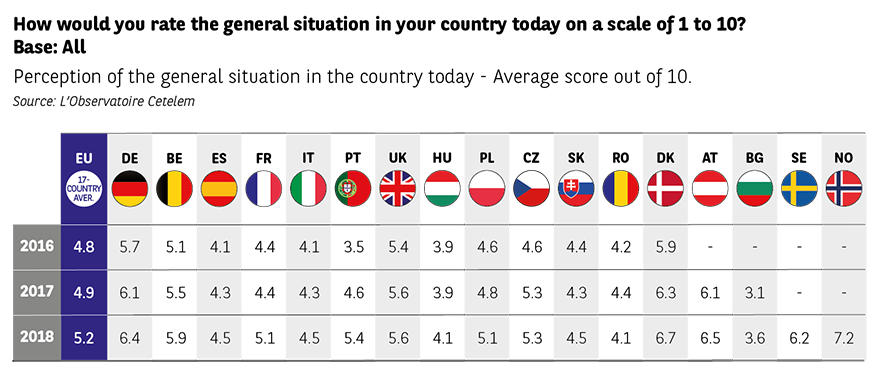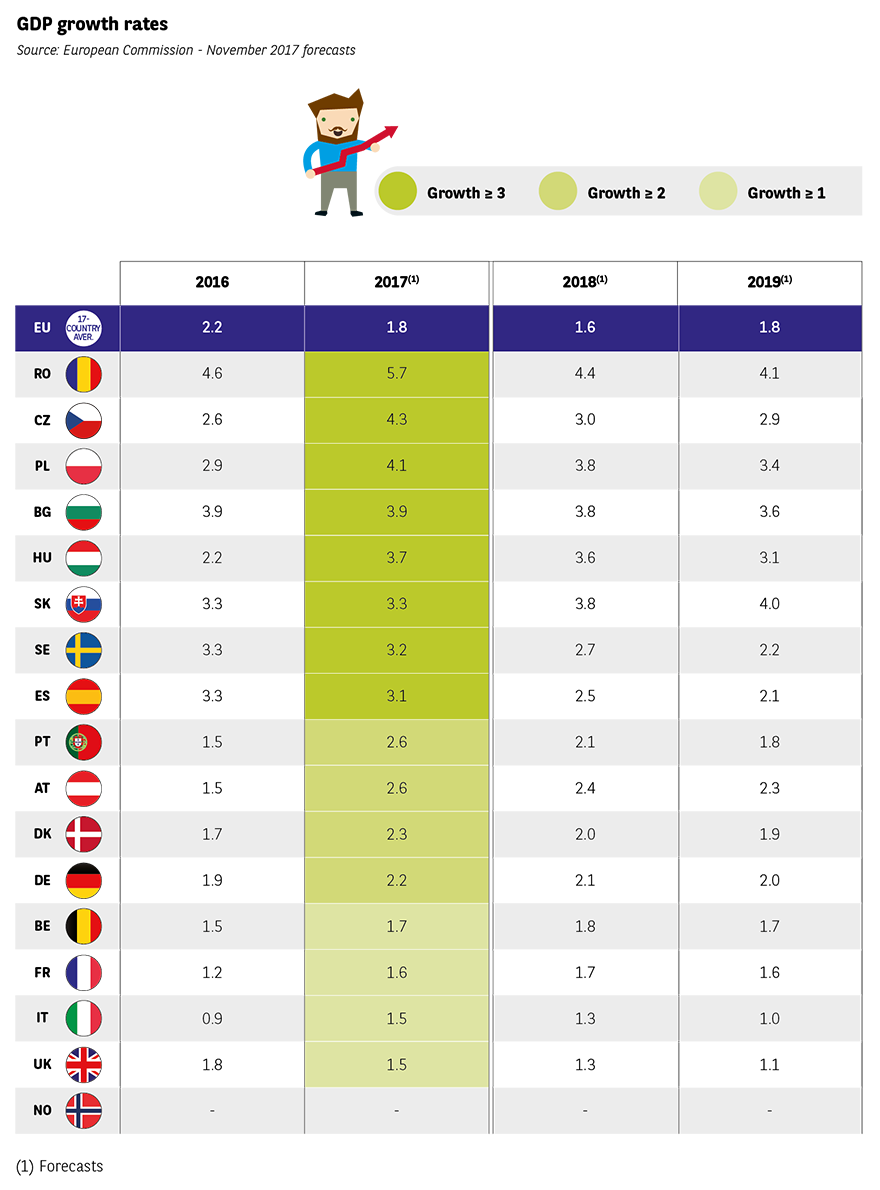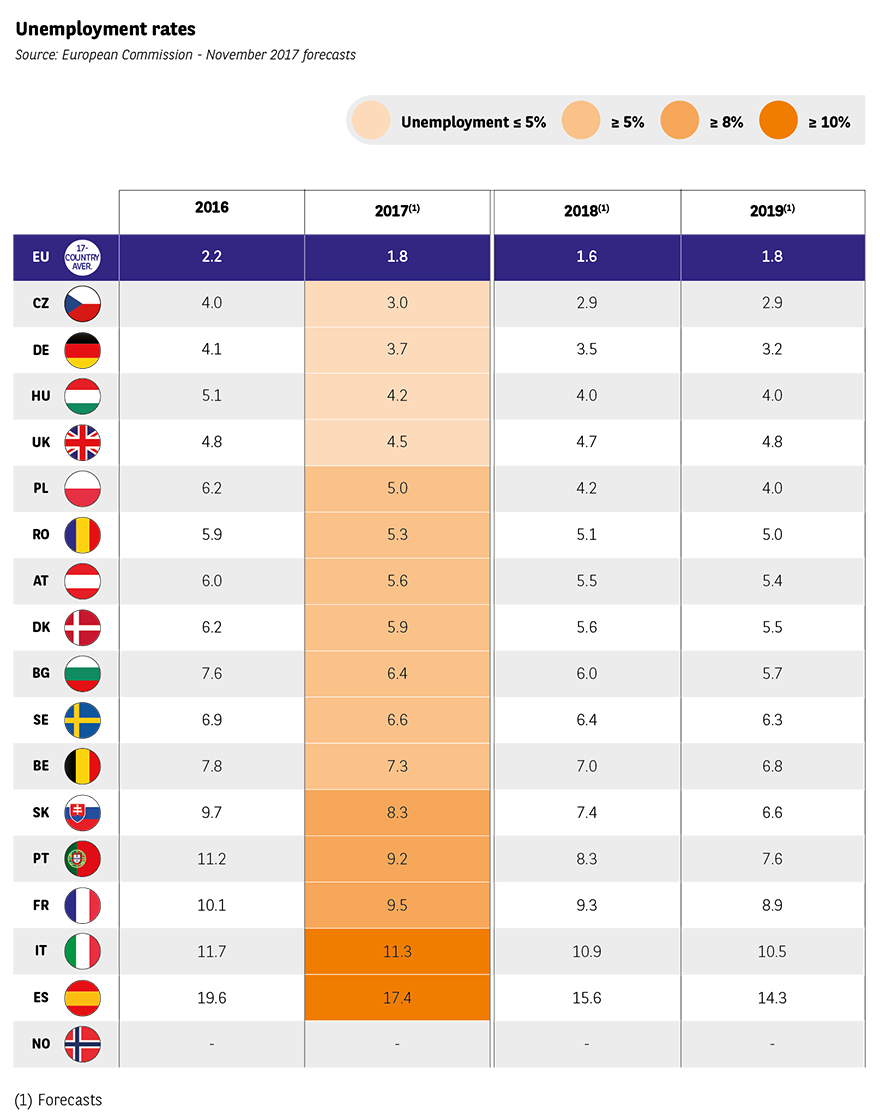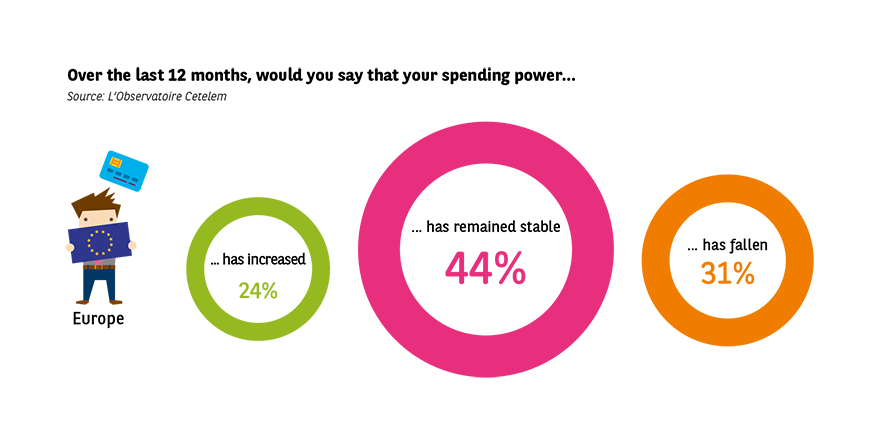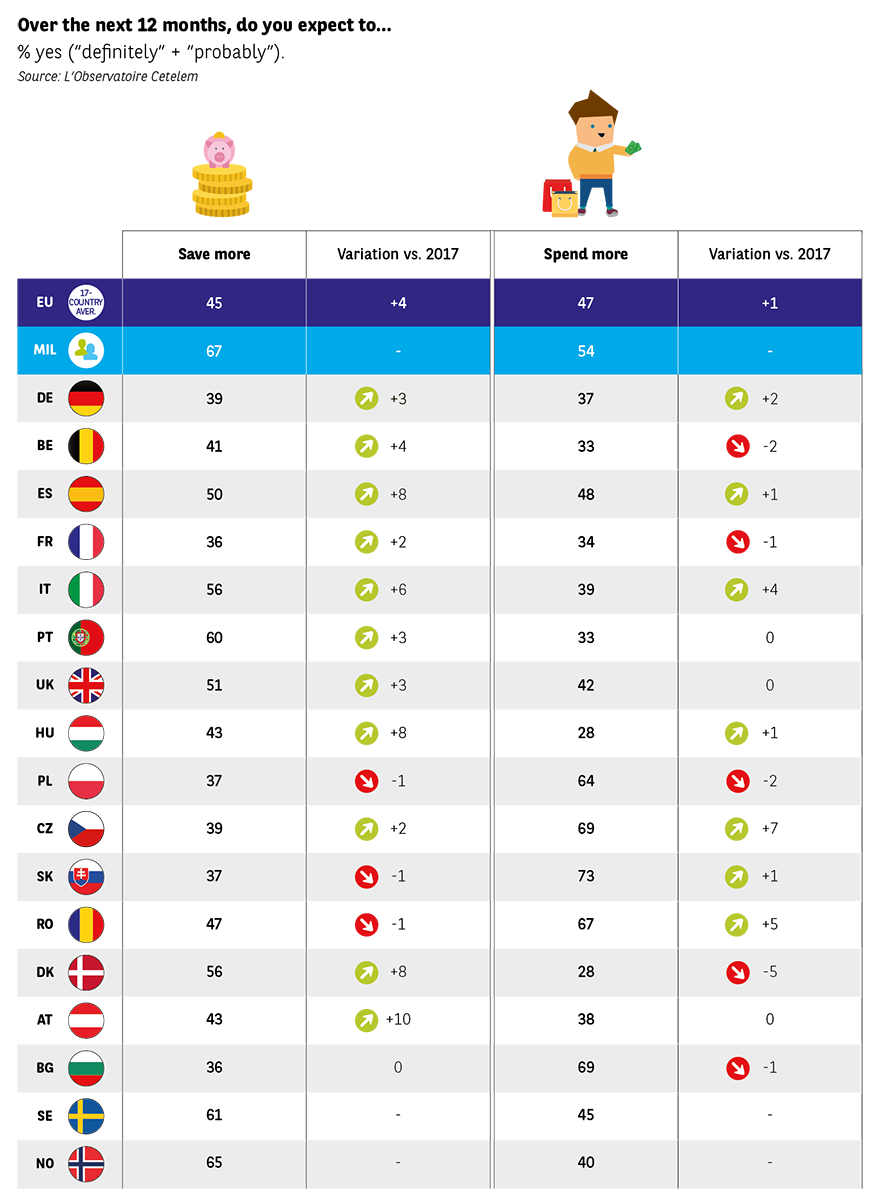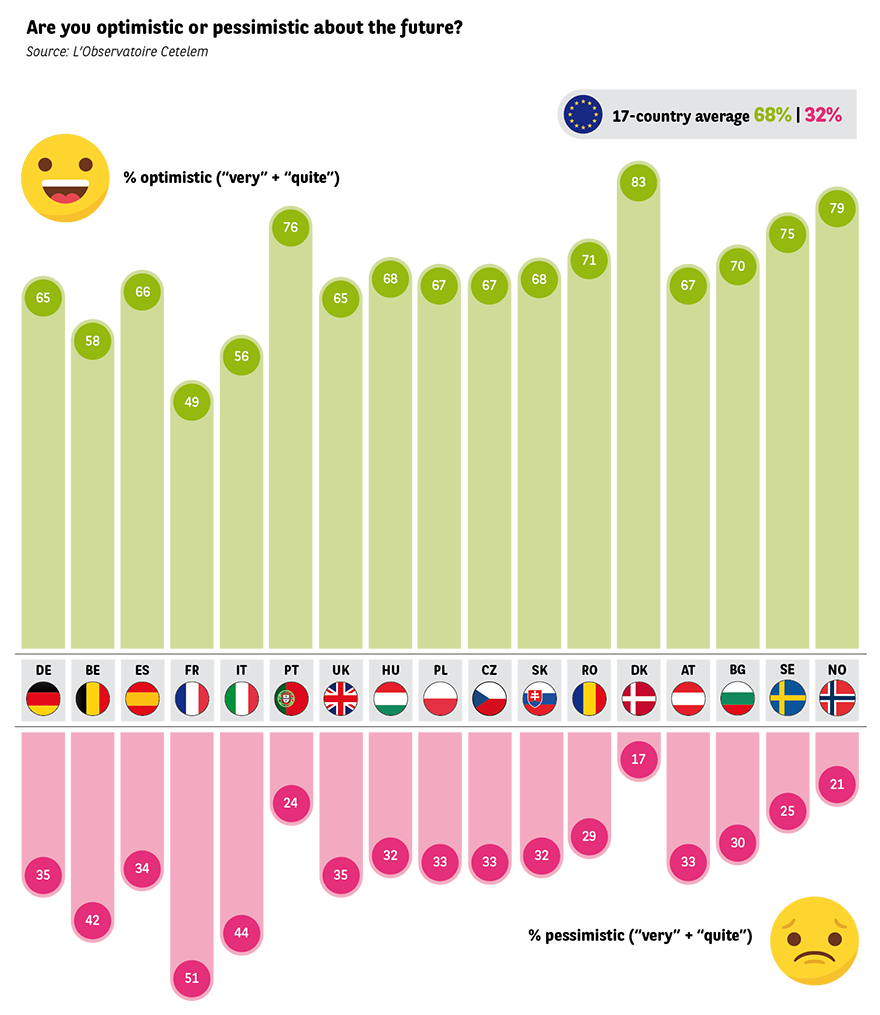Confidence across the Board


In 2008, the headline of L’Observatoire Cetelem suggested a “crisis of confidence” among Europeans. 10 years down the road, it is tempting to talk about “renewed confidence”. Because confidence has clearly been restored throughout Europe.
Countries are regaining their health
For the first time in many years, the average score Europeans award to the situation in their country is higher than the “pass mark” of 5 (5.3). As a reminder, the score was 4.9 in 2007 and just 3.7 at its low point in 2013. Although there had been a significant positive trend over the course of the last four editions of L’Observatoire Cetelem de la Consommation, this result is particularly encouraging because it reflects the situation in almost every country covered by the survey.
Economies are heading in the right direction
A macro-economic context that is favourable once more is a source of greater optimism for Europeans. Across the continent, growth has been bolstered. Only Spain and the United Kingdom, the latter mired in Brexit, have seen their score fall. For some, the bounce has been quite spectacular. Portugal has leapt from +1.5 to +2.6, while the Czech Republic has jumped from +2.6 to +4.3.
Unemployment is another area in which there is no shortage of reasons to be positive. This particular indicator is down across the board, with results that point to the existence of residual unemployment in some countries, including Germany (3.7%) and the Czech Republic (3%). Nonetheless, unemployment remains high in southern European countries such as Spain, where 17.4% of the active population is jobless, and France, which is struggling to dip under the 10% mark.
Of all the countries surveyed, only Romania posted a 2018 score lower than the previous year’s (4.4 vs. 4.1), despite its excellent economic climate. Political tension seems to be behind the drop.
Conversely, Portugal, which had for many years been the most pessimistic country, is experiencing a degree of euphoria with a 0.8 point improvement in its score. Having long been buried deep in economic gloom, the country is now reaping the benefits of government policy.
France also posted one of the biggest improvements (+0.7). Its overall score is now above the aforementioned pass mark (5.1). Can this be put down to the “Macron effect”, with the emergence of positive discourse that is somewhat contagious? This is probably part of the explanation, but economic figures are improving in practically every area, providing a fresh source of optimism.
We should also highlight the fact that Norway has joined L’Observatoire Cetelem de la Consommation. The happiest country in the world, according to the 2017 World Happiness Report, justifies its reputation here. The Norwegians give the overall situation in their country a score of 7.2, the highest in the survey.
People are increasingly satisfied with their personal circumstances
Year after year, Europeans display greater optimism about their personal circumstances than they do regarding the situation in their country. 2018 is no exception. The score of 5.8 is 1 point higher than five years ago and serves to confirm the upward trend observed over the period. And this time around, all the Europeans surveyed for L’Observatoire Cetelem agree that their personal circumstances have improved in the space of 12 months. Only the Hungarians remain below the pass mark (4.6 vs. 4.2 in 2017), while the Bulgarians, and to a lesser extent the Portuguese, appear to be regaining their optimism (+1 point and +0.5 points, respectively). The Brits seem unwilling to consider the potential negative effects of Brexit on their personal circumstances (+0.3 points). The French, meanwhile, continue to view life in a more positive light (5.9 or +0.2 points). But those in the Nordic countries have the biggest smiles on their faces (6.6 in Sweden and Denmark, 6.5 in Norway).
A consolidation of spending power
This result is driven by greater positivity when it comes to material considerations. 7 out of 10 Europeans believe that their spending power has remained stable or improved, with the proportion signalling an increase having risen by 6 points (+24%). The Swedes, Romanians and Norwegians express the most positive opinions on this topic (38%, 37% and 35%). However, almost 1 in 2 French consumers continue to reject the idea and believe that their spending power has fallen.
Spending and saving are on the up
This improvement in personal financial health is also reflected in more positive spending and saving intentions. Both of these L’Observatoire Cetelem de la Consommation indicators have always been borne out in reality. 47% of Europeans (+1 point) intend to spend more over the next 12 months. As in previous years, the desire to consume is stronger in the East (Slovakia: 73%, Bulgaria and Czech Republic: 69%, Romania: 67%). Conversely, the Danes, Portuguese and Belgians display a degree of prudence (28% and 33%), while the French are barely more inclined to spend (34%).
Saving intentions are even more pronounced. 45% intend to put more money aside (+4 points). This seems to reflect a desire to save while the going is good, rather than pointing to a sustained upturn. The Norwegians, Swedes and Portuguese are the most foresighted (65%, 61% and 60%). At the other end of the scale, only 36% of French consumers declare that they are keen to save more. This is put into perspective by the 40% drop in the average amount saved, as observed by the Allianz group, which now stands at €1,190 per year.
A brighter tomorrow
When questioned about their vision of the future, Europeans remain upbeat. 7 out of 10 declare that they are optimistic, or very optimistic, about the future. The clearly reinvigorated Danes, Norwegians and Portuguese believe that the future is bright (79%, 75% and 76%, respectively). Once again, the French stand out due to their ambivalence about the future. They are the only population to contain a pessimistic majority (51%), far ahead of the Italians and Belgians (44% and 42%).

